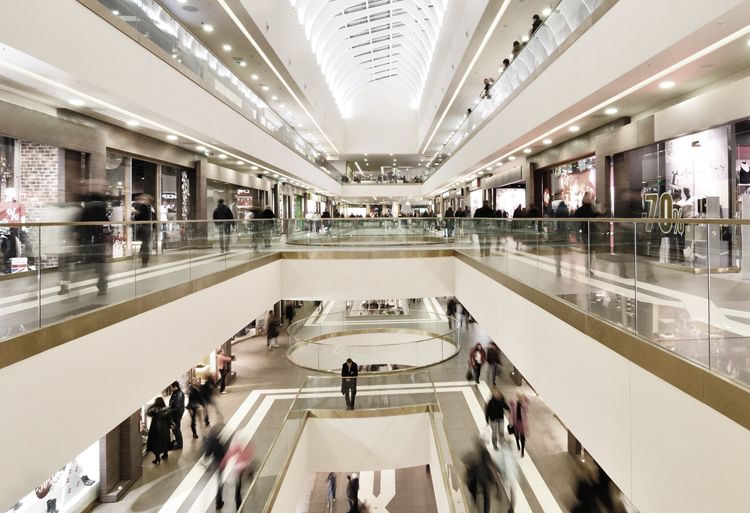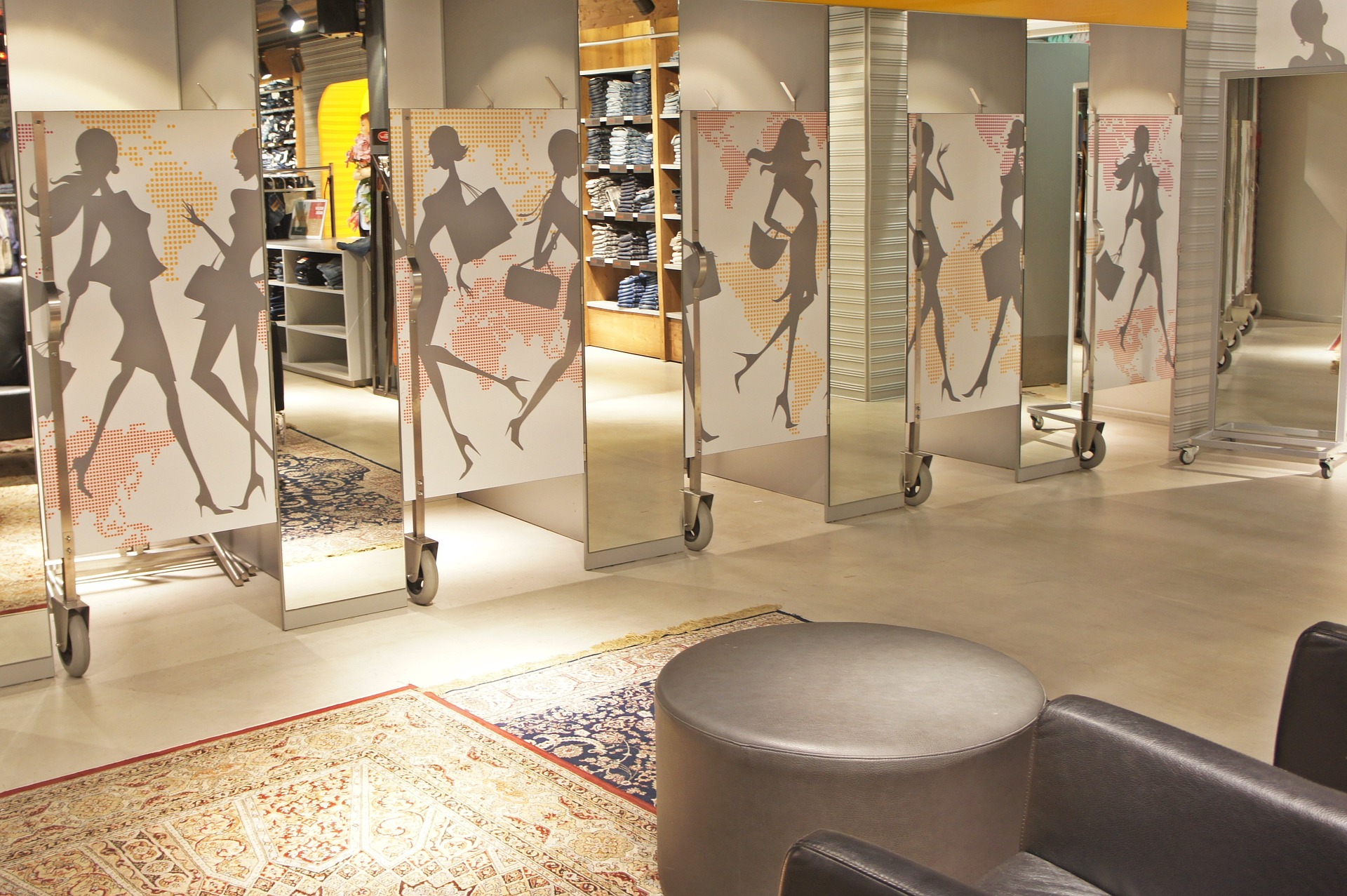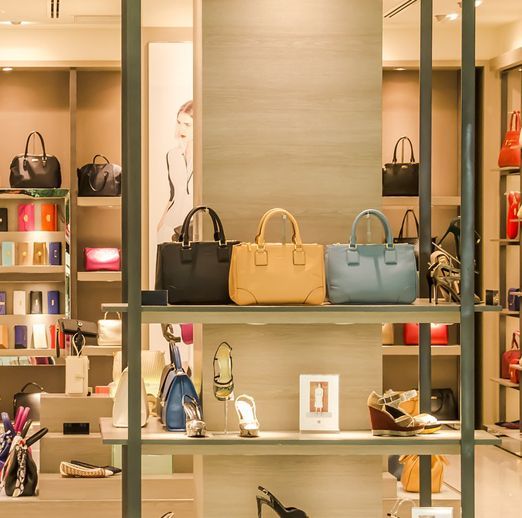Internet Protocol (IP) cameras have been offering a retail security solution for over a decade now – but it's only of late that the systems have become the preferred choice over the more traditional, analogue-based systems. This is due to the constant improvements in technology that have seen the initial cost of an IP system to significantly reduce, making it realistically affordable for even the smallest of retail businesses. Aside from their affordability being an attraction, IP systems are able to send and receive data through a Network Video Recorder (NVR) via WIFI or cloud storage – making them a far more flexible choice over analogue-based systems, which store footage locally using a Digital Video Recorder (DVR).
At Tagmax we have the very latest in IP camera technology that is able to monitor, alert and even analyse your retail space. Offering a vast range of benefits and available at a low cost, it's no surprise that many businesses have started to turn to using an IP system to protect, as well as to get the best out of their retail operation.
Here are the benefits that an IP system can bring to a retail operation;
1. A solution to the expiration of the analogue system. Being able to record images that are of a lower quality than the more modern systems, it's no surprise to see that the want for analogue systems is starting to die down. Keeping them running, could potentially cost more in the long run, much more than a complete system upgrade or replacement. If your analogue system is old, malfunctioning or unreliable, now is a good time to start thinking about replacing it.
2. Analytics. CCTV systems are able to record a lot of footage – but who is going to monitor it? Many retailers only check theirCCTV footage only once a crime has taken place – wouldn't it be better to monitor CCTV footage constantly and stop a would-be thief in action, before they're able to walk out of the store?
Offering a cost-effective solution is video analytics software that can be connected to an IP CCTV system and is able to detect anything from motion and missing objects to even any tampering with a security camera. If the software detects an intruder, it will immediately trigger an alarm which you will receive on a smartphone or tablet. You can then stream the live CCTV footage over a WIFI or mobile network and be able to take prompt action if required.
When installed alongside an IP camera, video analytics software can also allow you to use the footage to create data that can analyse certain aspects of your store. Creating reports on the footfall of your store will give you an opportunity to see how customers interact with certain products, how you can improve the layout of stock – even how to best disperse staff around the store.
3. Remote monitoring. If you're unable to keep an eye on your store or are looking for a 24-hour security solution, then it's possible to link your IP CCTV system to a professional remote monitoring provider. Operating from secure observation centres, they operate around the clock and if in the event of an alarm being triggered from your site, they take the responsibility of checking the CCTV footage and take further action if required.
4. Easy-to-install. There was a time when IP cameras were once more complicated to install than analogue-based cameras – not any longer. Their ease of installation is one of the primary features of the latest IP CCTV systems – manufacturers even promote the camera's 'plug-and-play' abilities that gets you up and running as quickly as possible.
5. Scalability and flexibility. Being almost infinitely scalable, you can combine any number of IP cameras quickly and easily. IP cameras can be added one at a time, whereas analogue systems can only grow by installing 4 or even 16 cameras at any one time.
In terms of its flexibility, IP systems can share a wired or wireless network with other types of cameras or other applications that can send video, audio, PTZ (pan-tilt-zoom), binary or power commands. IP cameras can also grow along with your current IT system – if you need to utilise tools for automatic system maintenance, or manage your network, for example.
6. Making use of the existing infrastructure. If you already have a pre-existing retail security system in place (analogue or not) an IP system is able to use the same infrastructure (i.e. cabling) to keep the initial cost of installing the system down.
7. Cost effectiveness. An analogue DVR may be cheaper than an IP's NVR – but you should really look at the long-term cost. An NVR doesn't just manage video surveillance, it can also look after your storage and data management needs too. DVR equipment will also need to be maintained – something which you can avoid by using an IP system.
8. Regulatory compliance. Many industries are highly regulated and require companies to retain video footage for a set period of time. Storing the footage on a DVR, as part of an analogue system can run up high costs and the footage itself won't be truly secure. An NVR is able to store more footage in a remote location, making it cost-effective and much safer.
9. Image quality. IP cameras are able to capture images at a much higher resolution than analogue cameras, delivering superior image quality. This will have obvious benefits when you need to examine footage of an intruder, for example. You will be able to zoom-in and a get a much clearer picture of who the person is. Better image quality also makes for quick and accurate video analytics too.
10. Reliable and durable. Due modern design techniques that have manufactured them, IP CCTV systems that use NVR's have been proven to be more reliable, durable – and faster - than their analogue/DVR counterparts.
IP Cameras – offering retailers a much-safer environment
At Tagmax, we have a wide range of security systems that are designed to protect, preserve and advance your business. For more information on IP cameras or any other aspects of our retail security services, please don't hesitate to give us a call on 0800 044 3160 or e-mail us at sales@tagmax.co.uk
View more blog posts



